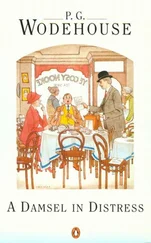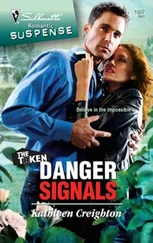Captain Comstock settled back into the cushions of his chair. ‘It’s turned out well,’ he said. He put the purse out of sight, beneath his thigh. The sovereigns hit something hard. He pulled a pistol out from underneath the cushions, a German flintlock with a ram’s-horn butt.
‘Well found, sir,’ said Walter Howells. ‘I’d marked it down as being lost or stolen.’ He hung the flintlock on its bedboard hook. The two men shook hands, but didn’t meet each other’s eyes.
GEORGE THE parlourman, meanwhile, had got the five Americans and Palmer Dolly knee deep in mud in fields just to the east of Wherrytown. There’d been reports, he said, of ‘trespasses’: an open gate, a disturbed turnip clamp, a light at night, goats with burgled udders. At first their search party had been high-spirited. This was more fun than mending sails. They whistled as they walked. They called out Otto’s name, and some names that George and Palmer hadn’t heard before. The mate began a plantation song and all his shipmates joined the chorus:
‘Run, nigger, run,
The day is come,
The wind gonna ketch you.
Dat nigger run,
Dat nigger flew,
But still we comes to fetch you.’
Once the song had ended, though, the wind began to bite, and legs that were at ease on tossing decks grew tired and heavy in the steadfast, frozen fields. By now the sailors didn’t give a damn if Otto were caught or not. He wasn’t worth the mud. We’re going back, they said. This wasn’t mutiny. The captain wasn’t there. And George was not an officer, and this was not the Belle . George teased them for their lack of fortitude until it was suggested, by the mate, old Captain Keg, that he’d be wise to give his mouth a rest unless he wanted mud in it. He led them into Wherrytown, in an unusually silent and cheerful mood. They went back to the Belle .
George and Palmer found the Wherrytowners gathered at an empty cattle shed, on the leeward side of town. Someone, something, was in the loft, they said. No one — not even the veteran of Waterloo — would volunteer to climb up the ladder and search the straw. They were convinced that Otto was hiding there, a pistol in his hand, a head full of mischief, black magic at his fingertips. They’d either smoke him out or wait until he starved. It might be amusing, George thought, to let them try and starve him out. It could take a year or two, before the siege became a bore. But he was more amused at the quicker prospect of being mistaken for a hero. ‘He’ll never starve,’ he said. ‘Those Africans can live on straw. Here, let me take a look.’ He wouldn’t take the musket or a stick or let Palmer, keen to be a hero, too, accompany him. He climbed up into the straw, threw bunches of it through the loft trap, made a din, made choking noises, went quiet, and finally came down with an injured pigeon folded in his hands.
‘There, Otto, there,’ he said. ‘We’re going to put you somewhere safe, where you can’t do these people any harm, nor steal their chickens, nor rip the meat off cows, nor go howling like a wolf all night. We’re going to put you in a pie.’
HOW DULL it was in Wherrytown. Even the weather was dull, a leaden sky, no wind worth spitting at. And mild! November must have lost its gloves and gone back to October to look for them. The townsfolk — gloveless, leaden too — went about their business making pennies, making pies, helping out with pilchards and the Belle . Otto only bothered them at night. Each banging gate, each barking dog, caused wives to wake their men, and men to take a nervous look outside, expecting worse than ghosts. Nathaniel Rankin settled in the chapel green. He was not the haunting kind. The weight of stone and earth splintered the cheap wood of the coffin lid. The mound that marked his grave collapsed and sank. As soon as there was any light two robins gleaned the open earth for worms; a dog hawk gleaned the sky for birds.
Along the coast at Dry Manston there were nets to be mended, sails to patch, peat to cut. No one bothered with the kelp. The high-tide mark was hemmed with it. It was as worthless now as sand. Miggy Bowe had too much time. She didn’t want to stay at home. She was uncomfortable there. She hated every stone of it. Her mother hardly had the heart to speak. She just watched Miggy, constantly, and took every chance to kiss her daughter, hug her, wish her well. Miggy fled each day to Wherrytown and idled around the quay, watching as the ship was mended, and provisioned for the voyage with salt meat, potted pilchards, orange preserve in stone jars, dried raisins, blocks of portable soup. She looked seasick already. The sailors nicknamed her the Ghost: the white, unsmiling face, the red kerchief, her haunted, lovelorn voice. Ralph Parkiss slipped away from work at every thin excuse. He gave her one of his best shirts, and promised her a silver wedding band as soon as he could find the money. He’d already signed away his next month’s wage to pay for Miggy’s passage to America. The captain said he’d marry them at sea and let them have a cabin for a night. He’d take down a side of bacon for the wedding feast. Everyone was fond of Ralph. He wasn’t calloused yet. Ralph walked to the shore with Miggy, and took her out of sight between beached fishing boats. He kissed her on the neck, the mouth, the ear. It was too cold and open for much more. But Miggy was prepared for more. What would it be like to be touched and kissed by Ralph when he was her husband, when they were bucking on the sea with bacon on their breath? Why wait? Why not go off and find some barn where she could throw away her clothes, undress herself from this dull place, and be a naked child again? She wouldn’t throw away her neckerchief, though. Ralph said he liked it at her throat. It made him passionate, and she should wear it on their wedding night, and nothing else. She thought that making love was lying still. They’d be like two caterpillars, softly wrapped, and hanging motionless from a fern on one thin, breathless thread. Or like two boats at anchor in the same light breeze, tethered on a single line, and calm. She’d have her body matched to his, his chest against her back, their flesh mollified not made hard by passion, their breathing slow and unified. The love she felt for Ralph would somehow — on their wedding night, or in some barn near Wherrytown — become as tangible and soft as thistledown. No matter what her mother said.
She wasn’t pleased to see that Palmer Dolly also hung around the quay, offering to help with any heavy load or fetch some tool or timber from Mr Howells’s store. Palmer was too intimate. He called her ‘Mig’. He pulled her coat. ‘I got a dollar,’ he said. ‘You want to see it, then?’ He put Rankin’s dollar in her hand: ‘There’s fifteen stars on that,’ he said. He pointed out the harp-winged, bowered bird on the reverse, and the date of 1794. ‘It’s old, in’t it? It’s older than my ma and da.’
Miggy didn’t care about the date, the bird or fifteen stars.
‘So what?’ she said. But she liked the dollar’s bust, so unlike the bull’s-head portrait of the King on English coins: it was a girl with flowing, unconsidered hair, slightly parted lips, and eyes raised to the sky.
‘Don’t that look like you a bit?’ Palmer said. ‘It’s Liberty, she’s called.’
‘So what?’ Miggy’s lips were slightly parted, too. Her hair had not been combed, it seemed, since 1794. ‘Where d’you get it, though?’
‘The captain give it me.’
‘I bet he didn’t. What for?’
He made her listen to his boasts that Captain Comstock meant — if he were asked — to take him on as a sailor. Miggy was not pleased. She and Palmer might have been sandmates when they were small. But now she was a woman, promised to another man, and ready for the voyage to America. She wanted no one in the rigging except the real Americans. Palmer ought to leave her well alone. She didn’t even want to speak to him.
Читать дальше












